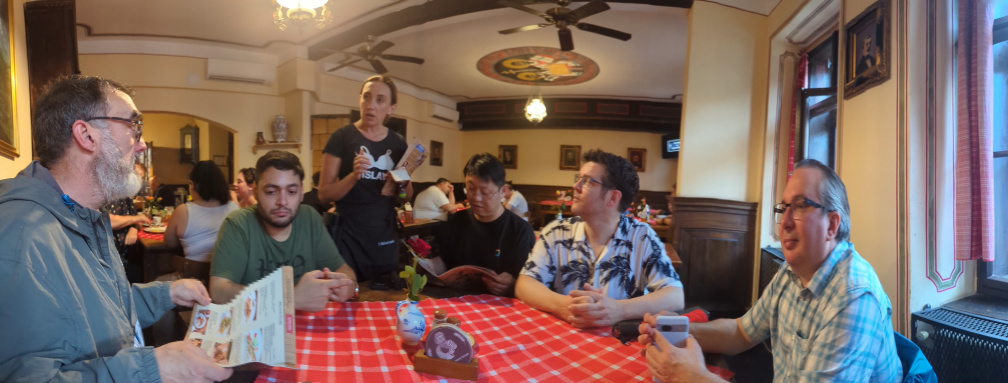Donald Trump told you who he is. He did not sugar coat it.
He told you that he views women as property who should be told how to think and how to vote, whether they like it or not. He told you that he will take vengeance on anyone who disagrees with him. He told you that he supports Putin, that he thinks Hitler had a lot of great ideas, and that he thinks Kim Jong Un’s method of government is something that we should try.
He told you that he believes that foreigners are intrinsically less worthy of life, liberty, and happiness than Americans. That foreigners are more likely to commit crimes, especially if they are from countries where people aren’t predominately white. He told you these things despite decades of data that proves it’s not true.
He told you that people not like “us”, whether in skin color, or gender, or ethnicity, or sexual orientation, are suspect, and should be punished for being different.
He told you that he won an election that he clearly lost, and even though he didn’t believe that, and none of you believed that, you continued to repeat the lie again and again until you could accept it. He told you this despite overwhelming evidence that it was a lie.
He told you he doesn’t believe in science, preferring “common sense” to centuries of accumulated knowledge.
He told you that tariffs will fix our economy, despite clearly not understanding what a tariff is, and despite the opinions of every economist who evaluated his plan.
He told you that his tax plans will improve life for the average American, despite the fact that he has only, ever, reduced taxes for the very very rich, and for companies.
He told you that he is a great businessman, despite having driven almost every one of his buisnesses into bankruptcy over the years.
He even told you that he supports the right to an abortion, which is something you said was a deal breaker. Yet you seem to believe that he is the more “pro life” candidate, despite him explicitly telling you his position, repeatedly.
You chose him anyway. I’m sure you had your reasons. I expect you even thought they were good reasons.
Some of you – many of you, even – said that you knew who he was. Some of you even acknowledged that he was all of the above things, but that, somehow, that didn’t rise to the level of voting against him. That, somehow, either he didn’t mean the things that he has promised to do, or that “the system” would prevent the worst of his promises.
I guess, at this point, we can only hope that you are right. That when he tries to deport millions of immigrants, for the crime of being foreigners trying to make a new life, that he’ll be thwarted by decent people. That when he tries to impose tariffs on every import, someone will explain to him in small words what a tariff is, and that, somehow, he’ll understand. That when he tries to persecute people for the crime of loving someone that he thinks they shouldn’t love, that the basic principles of the Constitution will somehow prevent that, even though he owns the Senate, and the Supreme Court.
(The irony that only Mitch McConnell has the will and the ability to turn the will of the Senate against these injustices is not lost on me.)
That somehow, against all evidence, he’ll have someone in his circle of advisors who is willing to tell him no, and not amplify his worst instincts.
But don’t forget that you chose this. You cannot pretend that you didn’t know. You cannot pretend that you misunderstood what he has promised to do to all of us, and those we love. He has been very clear about this. Even while he has rambled insanely about so many other things, he has been consistent, for 8 years now, in his diatribe against reason, against democracy, against freedom, and against science.
You chose this.

 I’m pretty sure it was taken by Chris Davis. It’s me and Ken Coar riding up in the elevato at ApacheCon Stuttgart in 2005.
I’m pretty sure it was taken by Chris Davis. It’s me and Ken Coar riding up in the elevato at ApacheCon Stuttgart in 2005. I was there too, but I didn’t include myself.
I was there too, but I didn’t include myself. This is another of my favorite ApacheCon pictures. (
This is another of my favorite ApacheCon pictures. (